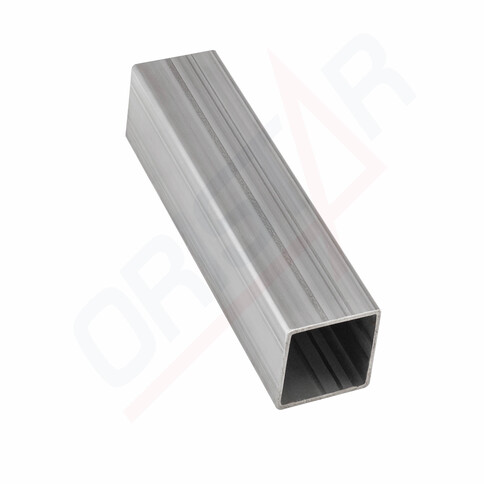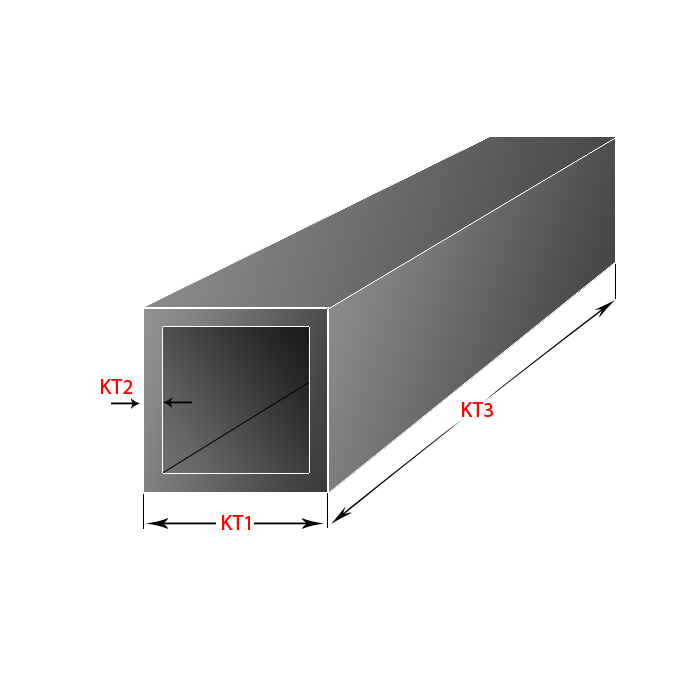THÔNG TIN CƠ BẢN
STKR400 Non-Alloy Steel is a type of non-alloy steel pipe designed to meet high mechanical requirements, particularly in construction and mechanical applications. STKR400 steel is widely used in the construction and machinery industries due to its strength and good mechanical properties.
Key Characteristics of STKR400 Non-Alloy Steel:
- Chemical Composition:
- Carbon (C): Approximately 0.18-0.23%, providing hardness and strength to the steel.
- Manganese (Mn): Approximately 0.60-0.90%, enhances ductility and impact resistance.
- Silicon (Si): Approximately 0.15-0.35%, aids in hardening the steel and improving corrosion resistance.
- Physical Properties:
- Tensile Strength: Approximately 400 MPa, allowing the steel to withstand high tensile forces in strength-demanding applications.
- Hardness: Can achieve higher hardness after heat treatment processes such as quenching and tempering.
- Machinability: Good, easily machinable using conventional methods like turning, milling, and grinding.
- Applications:
- Construction Industry: Used in the production of steel pipes for construction applications, such as structural frameworks, columns, and load-bearing components.
- Machinery Industry: Applied in machinery and equipment requiring high precision and strength.
- Automotive Industry: Used in the production of automotive components such as shafts and other high-strength parts.
- Manufacturing Industry: Utilized in producing steel products with high strength and quality requirements.
- Shape and Size:
- STKR400 steel is commonly supplied in the form of steel pipes, with dimensions and thicknesses depending on the specific requirements of each application.
Manufacturing and Processing:
- STKR400 steel is typically produced through basic steelmaking processes and hot or cold rolling to form the final product. Afterwards, the steel may be heat-treated to enhance its mechanical properties.
(Source: Internet)
Key Characteristics of STKR400 Non-Alloy Steel:
- Chemical Composition:
- Carbon (C): Approximately 0.18-0.23%, providing hardness and strength to the steel.
- Manganese (Mn): Approximately 0.60-0.90%, enhances ductility and impact resistance.
- Silicon (Si): Approximately 0.15-0.35%, aids in hardening the steel and improving corrosion resistance.
- Physical Properties:
- Tensile Strength: Approximately 400 MPa, allowing the steel to withstand high tensile forces in strength-demanding applications.
- Hardness: Can achieve higher hardness after heat treatment processes such as quenching and tempering.
- Machinability: Good, easily machinable using conventional methods like turning, milling, and grinding.
- Applications:
- Construction Industry: Used in the production of steel pipes for construction applications, such as structural frameworks, columns, and load-bearing components.
- Machinery Industry: Applied in machinery and equipment requiring high precision and strength.
- Automotive Industry: Used in the production of automotive components such as shafts and other high-strength parts.
- Manufacturing Industry: Utilized in producing steel products with high strength and quality requirements.
- Shape and Size:
- STKR400 steel is commonly supplied in the form of steel pipes, with dimensions and thicknesses depending on the specific requirements of each application.
Manufacturing and Processing:
- STKR400 steel is typically produced through basic steelmaking processes and hot or cold rolling to form the final product. Afterwards, the steel may be heat-treated to enhance its mechanical properties.
(Source: Internet)



